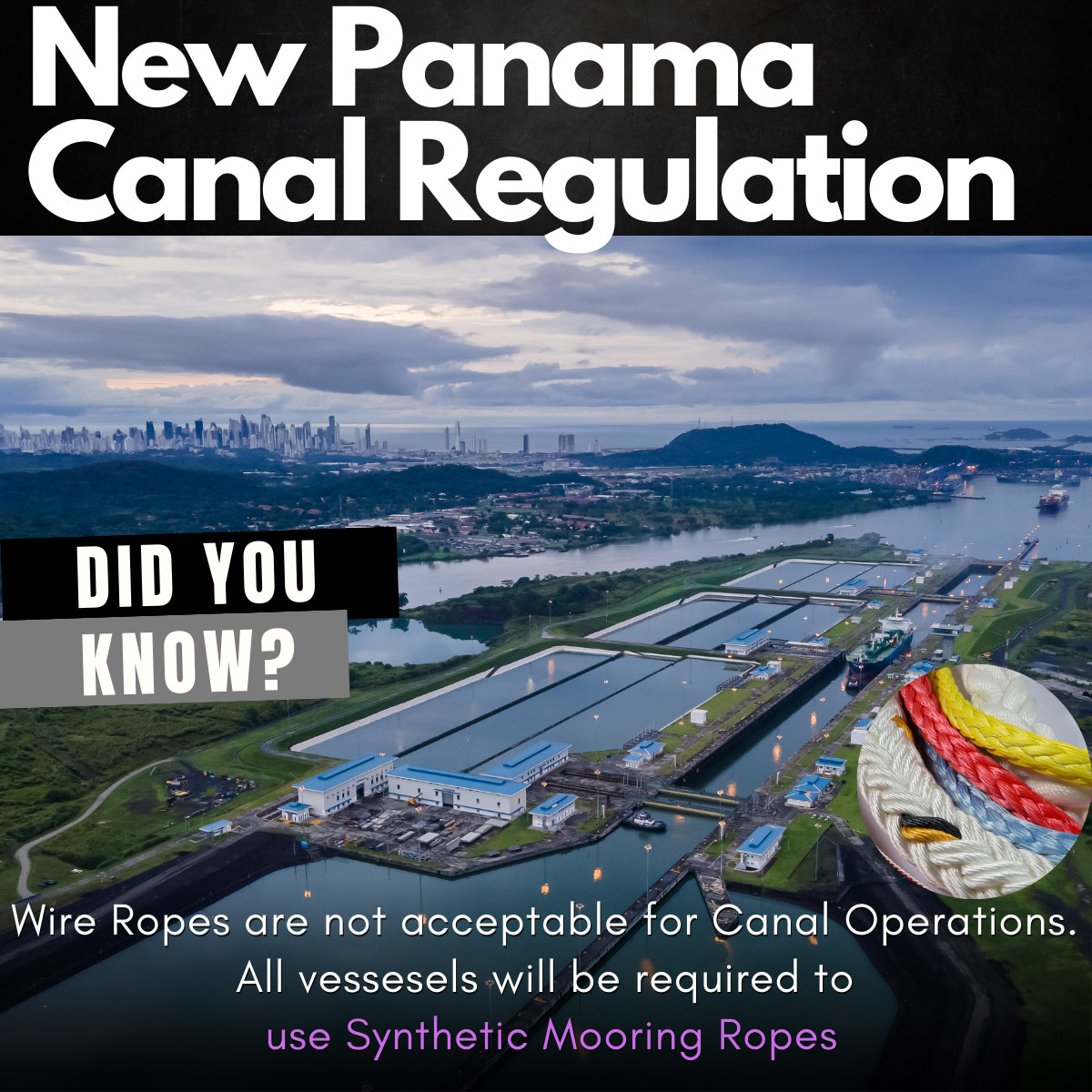

The Panama Canal, one of the most important trade routes in the world, has recently implemented a new regulation that prohibits the use of wire ropes in canal operations. This change is being made in an effort to increase safety and efficiency in the canal, as well as to reduce the environmental impact of shipping.
Wire ropes have been traditionally used in the Panama Canal for mooring ships, but they have several disadvantages. They are heavy and difficult to handle, and they can also be prone to breaking or stretching under the heavy loads of large ships. In addition, the use of wire ropes can cause damage to the canal’s infrastructure, as well as to the surrounding environment.
To address these issues, the Panama Canal Authority (ACP) has decided to phase out the use of wire ropes and to replace them with synthetic mooring ropes. These ropes are made from advanced materials such as high-performance fibers and are much lighter and easier to handle than wire ropes. They also have a much lower environmental impact, as they do not release harmful chemicals or pollutants into the water.
The use of synthetic mooring ropes will also increase the efficiency of the canal, as they will allow ships to be moored and unmoor more quickly and easily. This will reduce the time that ships spend in the canal and increase the overall capacity of the canal.
The ACP has also announced that it will provide training and support to canal operators to ensure a smooth transition to the new ropes. They will also establish a monitoring program to ensure that the new ropes are being used correctly and safely.
The new regulation will be phased in over a period of time, but the ACP expects that all ships using the Panama Canal will be required to use synthetic mooring ropes by 2025. This new regulation is a significant step forward for the Panama Canal, and it will help to ensure the safety and efficiency of the canal for years to come.
In conclusion, the Panama Canal has implemented a new regulation that prohibits the use of wire ropes in canal operations and replaces them with Synthetic Mooring ropes. This change is intended to improve safety, efficiency, and environmental impact of shipping through the Panama Canal. The use of synthetic mooring ropes will allow ships to be moored and unmoor more quickly and easily, reducing the time ships spend in the canal and increasing the overall capacity of the canal. The ACP will provide training and support to canal operators and establish a monitoring program to ensure that the new ropes are being used correctly and safely.